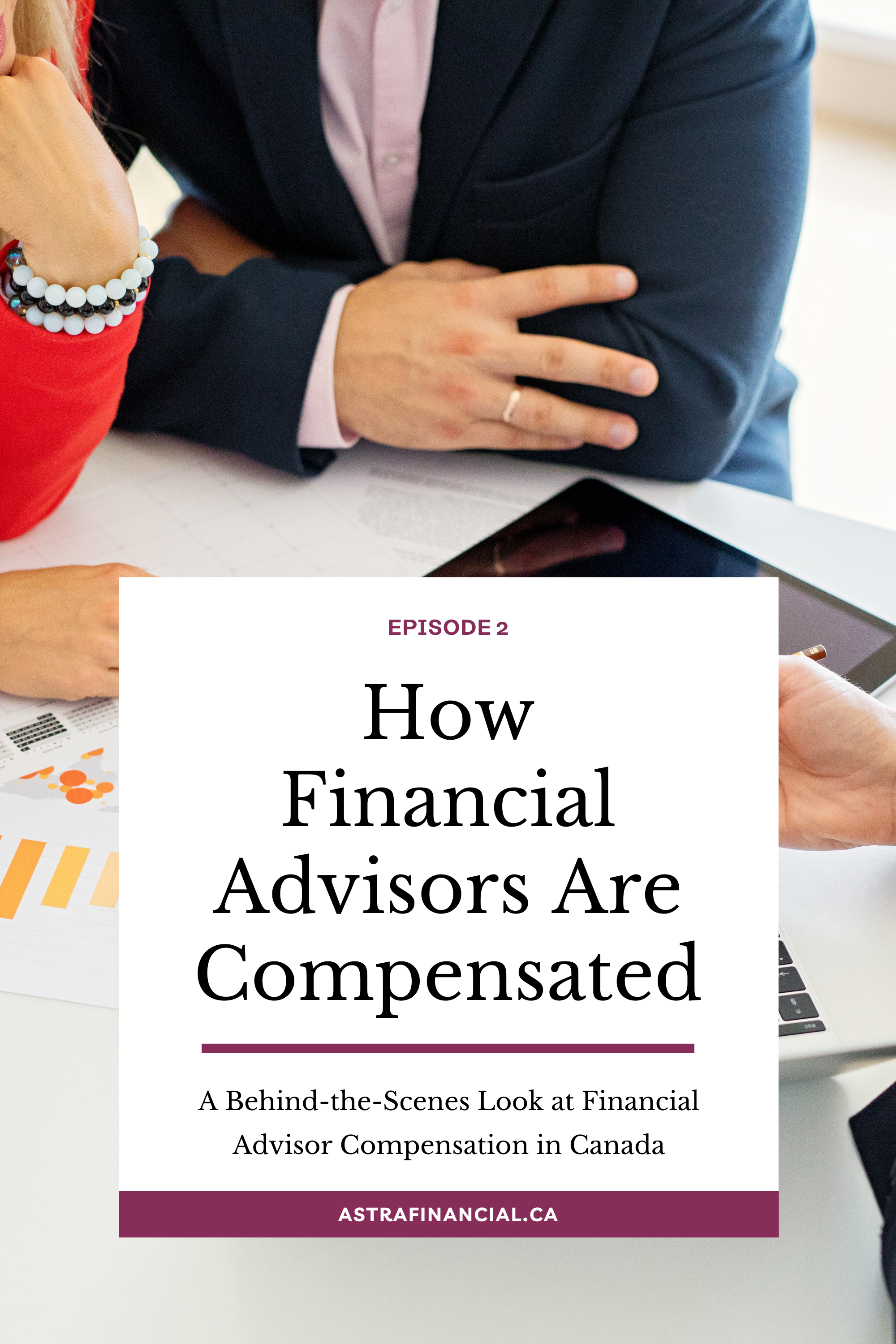Episode 2 – How Financial Advisors Are Compensated
How financial advisors are compensated matters. How does yours get paid? The way a financial professional makes their money may affect the quality of service they give, or the products they encourage you to invest in.
Someone might appear to be offering free financial advice since you never see the fee, but trust me, nobody works for free. At the end of the day you are the one paying them, even if you don’t realize it.
You deserve to have all the information and someone in your corner who has your best interests and successful financial future at heart.
In this podcast, I’m going over the different ways your financial planner might be compensated and what you need to ask before investing, so your retirement plans aren’t unexpectedly thrown off track. Listen to it now so you’re ready to tackle your financial planning.
Show Notes:
Hello and welcome back to another round of our Heart Of Money Talks.
I’m so glad you are joining us. The title of this episode is, “A Behind The Curtain Look At How Advisors Are Compensated”.
When I teach retirement classes, this is the topic that everyone waits for. This shouldn’t be a mystery but for most people it still is. I’m here to change that. Let’s demystify this because not enough people know this. It is one of the first things we talk about with our clients. We put it in writing, and it should be straightforward.
How your financial planner is compensated matters. The way a financial professional is compensated may affect the quality of service they deliver. If you ask your financial advisor how they are compensated and the explanation is too complicated to understand, then put on your runners and bolt. Someone might appear to be offering a free service since you never see the fee, but rest assured, nobody works for free.
It is important to know the different styles of compensation so that you make an informed decision when you choose this member of your money and retirement team. You want to find someone who puts your needs first.
Some advisors are tied to their company’s products. Depending on where they work or what institution they are affiliated with, an advisor may only be able to provide you with their company’s products. The affiliated product is not always apparent and can have a separate company name but still be a part of the parent company.
Ensure you ask and research that there is no affiliated mutual fund or other product tied to the company that your financial professional works for. If your advisor is at a bank, they will be paid their salary plus a bonus for any sales that are tied to investment holdings and bank products. So, the first question – is there an affiliated product with your firm that you are recommending?
Let’s jump into how an advisor could be paid. Some investment products provide a commission to your advisor as soon as you make a purchase. If you use a stockbroker, each trade may pay a commission. Mutual fund companies pay the advisor a few different ways.
The front-end compensation to the advisor is generally 1% paid in 12 one-month installments by the mutual fund company. The advisor is compensated from the management fee of the mutual fund. As an investor, you will not see this fee as it is paid by the mutual fund company.
The Deferred Sales Charge (DSC) is 5% to 7% paid upfront to the advisor from the mutual fund. The advisor is compensated from the management fee of the mutual fund company, and you do not see this either. However, if you change the fund or withdraw the money before a set period of time (five to seven years), you pay a DSC fee that comes right off your investment holding value. This can be very limiting.
It may be tempting for an advisor to suggest you switch your products often, regardless if there is a need or not to make a change, or to choose an appropriate product because of a large commission. In the investment world, this is known as churning.
With a large percent paid to the advisor, one wonders if it is in the best interest of the client or not. The trust factor goes down. This was the most common form of compensation in the 1980s, 1990s, and early 2000s. I still see accounts that are based on this model.
The asset-based fee model is set as a percentage of a client’s portfolio. If you had a $100,000 portfolio with an annual 1% fee, each year $1,000 is deducted from your investment account for advice and execution. The charge is transparent, so clients see this figure in writing and it is separate from product-based commissions.
The amount is usually deducted at the rate of one-twelfth of the fee every month. The mutual fund company does not compensate the advisor and the mutual fund fee is much less. Therefore, you generally pay a smaller overall fee with this model.
A fee-based advisor will charge for their service the same way a lawyer does – either by the hour or by the task.
For example, if you want an advisor to put together a comprehensive financial plan, they might charge you at $200 per hour and work ten hours for a total of $2,000. Or they might have packages so you can pick how much service you want for a predetermined price.
This type of payment plan can be very useful since you can hire the advisor when you need them and you know there is no product selling. Most people do not need a comprehensive financial plan drawn up for them every year and so this often works out as being better value than the yearly service fee.
So how do you know who to trust? You want someone you can depend on, someone you know is not going to gouge you with large fees. You can find some reassurance in knowing exactly how they are compensated. Any of the compensation models may work for you, as long as you understand exactly what you’re paying and what you get in return.
I do not recommend the DSC and trailing commission. It confuses and questions any of the advisor’s recommendations. Are they recommending it for your benefit or their benefit?
The total fees that you pay should be discussed. If you have products, ETFs or investments, you should know the fees of that investment and the fee that you pay an advisor. This is information that our office shares and has tracked for every single client. The goal is to not pay high fees. You want great returns and growth with the lowest fees because that is out of your take-home and you need your money to last your lifetime.
Everyone needs a financial plan to start. Before my own firm accepts a new client, we have to complete a fee-based financial plan. Otherwise, how are we going to know anything about the individuals – their dreams, goals, finances, previous experiences, and misconceptions? What do you want? Why? These all need to be explored before you can decide how to invest your savings.
This is a lot of information to take in. My purpose in writing it for you is so that you can come back to it as needed. It is your reference point as you need it. As time goes on, it will make sense and the pieces will start to come together. As you search for your tribe and build it, your knowledge will grow and so will your experience.
At the end of the day, there are good advisors and bad advisors no matter how they are paid. But, it is important to know how your’s gets paid and if there is a conflict of interest. You have the right to know. Whichever way you compensate your advisor, just make sure you get it down in a simple clear written statement.
That’s it, I’m going to let you soak this all in now. Don’t forget if you need you can check our website https://astrafinancial.ca/ for show notes, or send me a note with any questions or comments. I’d love to hear from you.
Till next time, I’m Zena





